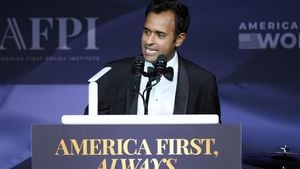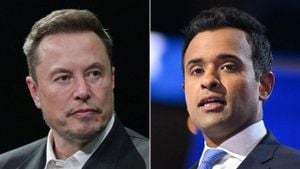Canada has found itself at the center of another political storm as Randy Boissonnault, the country’s employment minister, resigned on Wednesday amid allegations of misrepresenting his Indigenous heritage. This resignation raises significant questions about identity, trust, and the sincerity of inclusivity within the Canadian government, especially after extensive efforts for reconciliation with Indigenous peoples.
The controversy surrounding Boissonnault intensified following his fluctuated claims about his ancestry, which he has stated were heavily influenced by his adoptive family background. Initially, he portrayed himself as having Cree heritage, referring to his adoptive great-grandmother as either full-blooded Cree or Métis, which drew early scrutiny. The political backlash escalated rapidly when it was revealed through reports from The National Post concerning his co-ownership of a company purportedly representing itself as Indigenous-owned. The company was found to have bid on federal contracts designated for Indigenous businesses, prompting serious accusations of fraud and ethical misconduct.
Prime Minister Justin Trudeau’s office stated Boissonnault would "step away from cabinet effective immediately" to address the allegations. Despite claiming he never made false representations about his heritage, the minister’s explanations did little to quell the rising tide of outrage. He publicly apologized for any confusion concerning his ancestry and attributed the stakes surrounding his business dealings to misunderstandings, labeling them as unintentional. Nevertheless, opposition parties did not shy away from cataloging instances of perceived "race-shifting", commonly labeled as “pretendianism”—a term indicating individuals falsely claiming Indigenous ancestry for personal benefit—is rampant among influential figures throughout Canada.
The climate of resignation ironically plays out against the backdrop of Trudeau’s governmental aims, which have focused heavily on reconciliation with Indigenous peoples from the outset of his administration. Promises to rectify historical wrongdoings and provide comprehensive support to marginalized communities have coursed through the Liberal Party's agenda. Despite the goodwill extended toward Indigenous groups, this incident signals deep-seated issues with trust, representation, and accountability. The minister's departure disrupts Trudeau’s cabinet; he was the sole cabinet representative from Alberta, challenging not only unity within the Liberal Party but also its credibility as it heads toward the impending elections.
Compounding Boissonnault’s troubles, numerous calls for his resignation came from various quarters of the political spectrum, particularly from figures identifying with Indigenous heritage. Blake Desjarlais, a Métis MP, often leveraged his platform to highlight how incidents like this undermine the genuine status of Indigenous peoples, declaring: "The real victims are Indigenous businesses and Indigenous people who did everything right… to learn the system is rigged right here at the top. They are being overshadowed by those claiming to represent them under false pretenses."
This sentiment was echoed by former Justice Minister Jody Wilson-Raybould, who remarked, "A prime minister committed to true reconciliation would have removed Randy from cabinet long ago. Instead, we get to watch white people play ancestry wheel of fortune." With comments of this nature, the rift between Trudeau’s administration and the Indigenous community continues to widen; this incident amplifies the longstanding frustrations surrounding appropriated identities.
The history of misrepresentation of Indigenous heritage—referred to as “pretendianism”—is increasingly becoming a core issue within contemporary Indigenous rights discussions. It has crossed various fields including academia, literature, and politics, where similar accusations have arisen against notable figures. Each such case complicates the narrative of genuine allyship, allowing space for harmful stereotypes about Indigenous identity to flourish.
With Boissonnault out of the cabinet, Veterans Affairs Minister Ginette Petitpas Taylor has taken on the heavy responsibility of overseeing the employment portfolio temporarily. Her task will be to grapple with the repercussions of this episode on public perceptions of the Trudeau administration and credibility toward their commitments to reconciliation.
Notably, Trudeau’s administration has suffered plummeting approval ratings, particularly notable after nearly nine years of leadership. Having recently faced the loss of support from key factions within the House of Commons, his government is now teetering on the brink of early elections. Ironically, just as Trudeau positioned himself as the face of change, incidents like Boissonnault’s revelatory resignation threaten to undo the reconciliatory narrative he worked hard to cultivate.
This event highlights not only the fragility of individual political careers but also showcases the larger systemic challenges still faced by Indigenous communities throughout Canada. It creates space for discussions around authentic representation, accountability, and the importance of establishing integrity within governmental operations.
The optics surrounding Boissonnault’s departure serve as stark reminders of how significantly history and perceived identity can shape the political arena. The government’s future endeavors will be closely watched by communities, advocates, and critics alike as they navigate the intricacies of governance with newfound vigilance toward authenticity and integrity.



